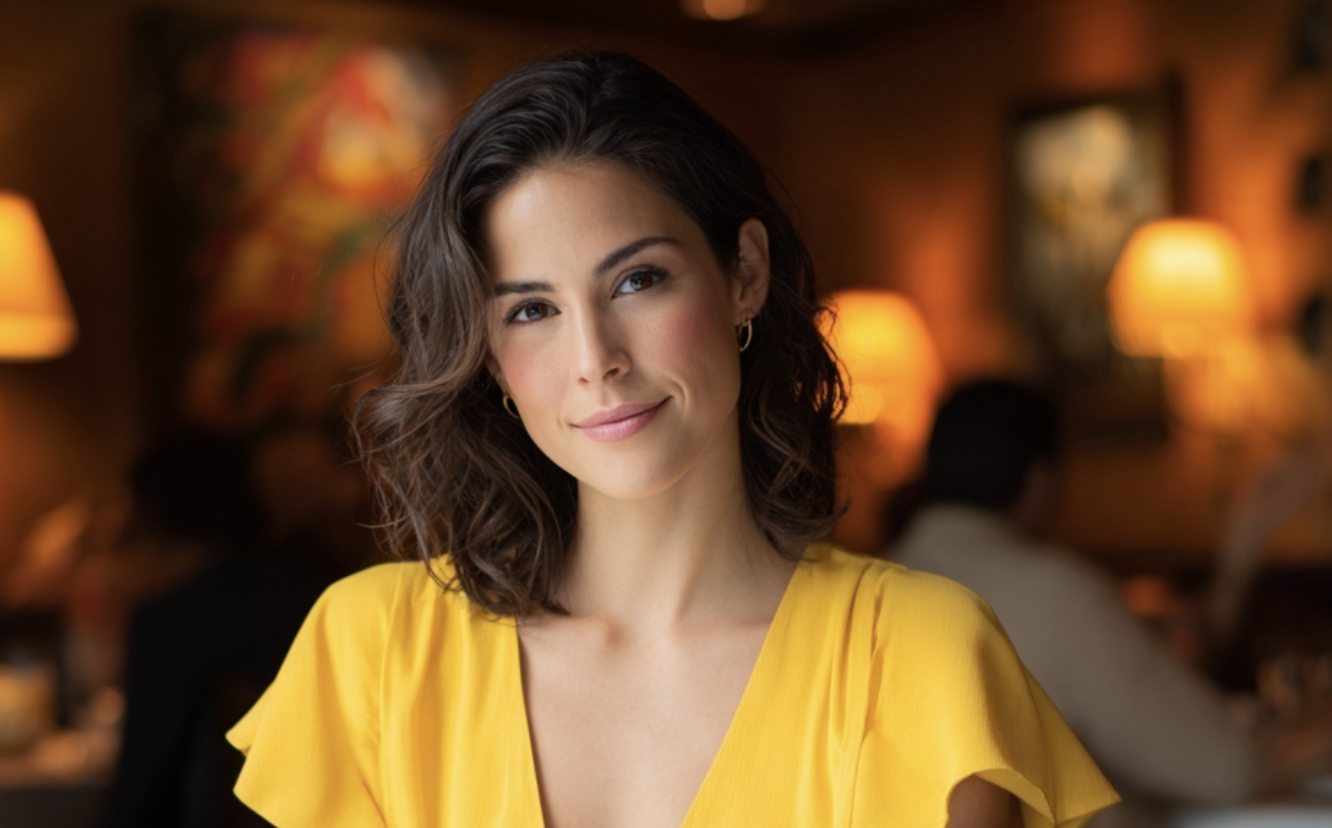Everything started with little things. So subtle, almost “family-like.”
“Lena, sunshine, could you help me?” — Galina Petrovna always called at the most inconvenient moment, as if she could sense when I had just sat down after work. “My utility bill came, and my pension won’t stretch to the end of the month. You know how expensive everything is now…”
I transferred three thousand to her. Then another five — for medicine. Then ten — the fridge broke. Andrei, my husband, only shrugged:
“Well, Mom asked, so help her. She lives alone.”
Alone. That was the key word Galina Petrovna brandished like an indulgence. A lonely pensioner, a widow, the mother of an only son. How could you refuse?
And I didn’t. I worked as a senior financial analyst at a large company, the salary was good, bonuses regular. Andrei and I lived comfortably: a three-room apartment in a new building, two cars, vacations abroad. I didn’t mind helping my mother-in-law. At first.
But small things have a way of piling up, like snow before an avalanche.
Six months later, Galina Petrovna was calling twice a week. She needed shoes — “otherwise I walk around like a pauper, Lenochka, it’s embarrassing in front of the neighbors.” She wanted to go to the theater — “I’ve been a cultured person all my life; one mustn’t let oneself go completely.” She needed to bring a birthday gift to a friend — “what, should I come empty-handed? You understand…”
I understood. I always understood. And I transferred the money.
By the end of the first year of our financial “help,” Galina Petrovna was essentially living on my support. Her pension, as I accidentally found out, was quite decent — like the salary of an average cashier. But it went entirely to random whims, and I covered all the everyday expenses. Utilities, groceries, clothes, medicine, taxis, beauty salons — the list grew like a snowball.
“Maybe that’s enough already?” I tried to talk to Andrei one evening. “Your mother’s pension is more than many working people earn. Why do we have to support her?”
Andrei looked at me as if I’d suggested throwing his mother out with the trash.
“Len, that’s my mother. My only one. Are you seriously begrudging her?”
“It’s not about that. It’s the principle. She’s taking advantage of us.”
“Taking advantage?” he raised his voice. “She raised me alone after my father died! Worked two jobs! And now, when I can finally help her, you…”
I didn’t continue. The conversation hit a dead end, as it always did when it came to Galina Petrovna.
Meanwhile I started noticing other things. Details that had seemed insignificant at first.
We came to my mother-in-law’s for tea, and when she walked us to the door she said to the neighbor on the landing:
“Yes, Andryusha is wonderful, he helps his mother. A real son, not like some people…”
Not a word about me. As if the transfers arrived by immaculate conception.
Or once I overheard her on the phone with a friend:
“She’s no housekeeper at all, Valya. Buys everything ready-made, their apartment is a mess. Whatever you say, Andryusha married unsuccessfully. I’d have picked someone else for him — prettier, with golden hands… Oh well, what’s grown is grown.”
I was standing in the hallway with bags of groceries — I’d stopped by after work on purpose to bring them to her. The cottage cheese from the farmer’s shop she loved so much was growing cold in my hands. Twelve hundred a kilo.
“Grandma, Mom is beautiful!” That was the voice of our eight-year-old Masha, who had heard the conversation too.
“Hush, child, adults are talking,” Galina Petrovna waved her off.
I turned and left. I set the groceries on the hall table without a word.
That evening Andrei got a message from his mother: “Thanks for the groceries. Tell Lena the cottage cheese is excellent.” Tell Lena. As if I were a courier, not the person who paid for the groceries.
I kept quiet. Again.
But something inside me began to shift. I started paying attention to details. How, among relatives, Galina Petrovna would talk about what a caring son Andrei was, what gifts he gave, how he helped — and again not a word about me. How she complained to friends that the daughter-in-law was always at work, never home, had let the grandchildren go to seed. How she sighed, looking at family photos: “Ah, Andryusha could have chosen a prettier wife…”
And I kept sending money. Thirty thousand a month. Forty. Fifty. Sometimes more.
And then one day, at the beginning of September, Galina Petrovna announced:
“In November I turn sixty. A round date, a serious one. I want to celebrate properly.”
We were sitting in her kitchen — me, Andrei, and the kids. Galina Petrovna was pouring tea into cups, her voice full of the unshakable confidence of someone used to getting what she wants.
“I want a restaurant. About thirty people. Everything beautiful — the tables, the music, and a photographer. So people remember. You’ll help, right?”
Andrei nodded right away:
“Of course, Mom. Absolutely.”
I was quietly finishing my tea. Inside, everything went cold.
“Pick out a good restaurant, Len,” Andrei asked on the way home. “You’re better at that.”
“Thirty people at a decent restaurant is about three hundred thousand,” I said. “Including drinks, music, and decor.”
“So what? We have savings.”
“Our savings,” I specified.
“Lena, it’s my mother’s birthday. Sixty. It’s important.”
I looked at him — this man I’d lived with for ten years, borne two children with, built a home and a career with. And suddenly I realized he simply didn’t see. At all. He didn’t see how his mother was using us. He didn’t see my feelings. He didn’t see the basic unfairness.
“All right,” I said. “I’ll handle it.”
I found a restaurant. Booked the best banquet hall. Agreed on the menu — per Galina Petrovna’s wishes, who sent a list of thirty items. Ordered floral arrangements, hired an emcee and musicians, arranged for a photographer.
Every evening Galina Petrovna called with new demands:
“Lenochka, can we have a three-tier cake? And get a pricier champagne, picky people are coming. Will the waiters be in bow ties? And can we order fireworks?”
I agreed to everything. The bill ballooned like yeast dough.
“Maybe we should keep it simpler?” Andrei suggested timidly when I showed him the final estimate.
“It’s too late now,” I replied. “Everything’s paid, contracts signed.”
He sighed and didn’t argue further.
The birthday turned out warm for November — almost five degrees and no snow. I wore a black dress, muted, modest. I didn’t want to outshine the guest of honor. Galina Petrovna met us at the restaurant in full regalia: a burgundy dress, fresh blow-out, manicure, makeup. She really did look festive and pleased.
“Oh, how beautiful everything is!” She looked around the hall, beaming. “Andryusha, you’re wonderful, my son!”
I stood nearby. It was as if I didn’t exist.
Guests began to arrive — relatives, neighbors, Galina Petrovna’s friends, former colleagues. We ended up with about thirty-five people, even more than planned. The hall filled with voices, laughter, congratulations.
Galina Petrovna received gifts like a queen — graciously, with a hint of condescension. When it was our turn, Andrei handed her an envelope:
“Happy birthday, Mom.”
There was a hundred thousand in it. My hundred thousand — from my bonus.
“Thank you, son,” she kissed Andrei on both cheeks. She didn’t even glance at me.
The evening rolled along its preset track: toasts, songs, dances. With each glass, Galina Petrovna blossomed, louder, merrier, more self-assured. She danced, laughed, received compliments.
And I sat at the table and did the math. Steaks at two thousand each. Oysters at eight hundred. Crémant — six thousand a bottle. Florist — twenty-seven thousand. Musicians — fifty thousand. Photographer — thirty…
Closer to ten, Galina Petrovna asked for the microphone. The host handed it over gallantly, and she, swaying a little — the champagne was clearly doing its work — stood in the center of the hall.
“My dear ones!” She swept her eyes over the guests. “I want to make a toast. To the most important person in my life. To my son, Andrei!”
Andrei smiled bashfully. The guests smiled.
“I raised him alone,” Galina Petrovna went on, her voice turning trembly and sentimental. “Alone! After my husband’s death. And he grew into a real man. Caring, kind, generous. Thank you, son, for everything!”
She raised her glass. The guests applauded.
“Although,” Galina Petrovna giggled, “I did hope for a prettier and more domestically skilled bride for you. But oh well…”
She flicked her hand as if shooing a fly.
“The one you’ve got will do too!”
The room froze. Someone gave an awkward laugh. Someone stared into their plate. Andrei turned pale.
And I felt something snap inside me. Quietly, almost soundlessly. Like an over-tightened string breaking.
I stood up. Slowly, unhurriedly. All eyes turned to me.
“May I speak as well?” My voice sounded surprisingly calm.
Galina Petrovna blinked, clearly not expecting it. She handed me the microphone — uncertain, wary.
I took it and turned to the guests.
“I’d also like to raise a glass. To our dear birthday girl, Galina Petrovna.”
She spread into a smile.
“Who, unfortunately, doesn’t suit me at all either,” I continued. “Not one bit. As a mother-in-law. As a person. And therefore…”
I paused, looking straight into her eyes.
“Therefore I will no longer be paying her bills. Any of them. Utilities — no. Groceries — no. Clothes, medicine, taxis, beauty salons — no. And this evening, by the way, I won’t be paying for either.”
The silence was so dense you could hear the air-conditioner dripping in the corner.
“Lena, what are you…” Andrei began, but I raised my hand.
“I’m finished. The bill for tonight is, as I expected, around three hundred thousand. I paid the deposit and half the cost. Consider that my gift to you. The rest — you can pay yourselves. Or ask the guests to chip in.”
I set the microphone on the table, picked up my bag, and headed for the exit.
“Lena! Stop!” Andrei jumped up, but I didn’t turn around.
Behind me a roar of voices exploded — indignant, shocked, bewildered. Someone swore. Someone gave a nervous laugh. Galina Petrovna was shouting something about ingratitude and rudeness.
I stepped outside. Breathing became easier.
The phone started blowing up with calls five minutes later. Andrei. My mother-in-law. Andrei again. Some Aunt Lyusya, my mother-in-law’s sister. I silenced it and ordered a taxi.
Home was quiet — we’d left the kids with my mom. I took off the dress, washed off my makeup, brewed chamomile tea. I sat by the window and looked at the night city.
Andrei came home around midnight. He entered quietly, as if afraid of waking someone. He went into the kitchen, where I was still sitting with my now-cold tea.
“Are you out of your mind?” his voice trembled. “Do you understand what you did?”
“Perfectly,” I said.
“My mother is hysterical! The guests were in shock! She had to ask people to chip in to pay the bill! Can you imagine how ashamed she was?”
“I can,” I looked at him. “Can you imagine how ashamed I’ve been all these years? When I supported your mother and she told everyone what a caring son you are? When I transferred money to her and she said behind my back that you married unsuccessfully?”
“She didn’t…”
“She did. I heard it. More than once. And you knew. You just preferred not to notice.”
Andrei sank onto a chair.
“Len, she’s an old person. She has her quirks.”
“An old person who made herself comfortable on my neck? Who dresses, eats, and entertains herself on my money? And who considers me unworthy of her son?”
“Well, she didn’t mean it…”
“Whether she meant it or not — I don’t care. I’m not an ATM anymore.”
He was silent, staring at the floor.
“You realize she hates us now?” he finally said.
“Possibly. But that’s her problem, not mine.”
“She’s my mother!”
“And I’m your wife!” I raised my voice for the first time that evening. “Ten years your wife! The mother of your children! I work as much as you do, I earn good money, and I have the right to decide what to spend it on! And I am not obligated to support a grown, healthy woman who despises me!”
He flinched at my tone.
“She doesn’t despise you…”
“‘Prettier and more domestically skilled.’ Did you hear it? In front of thirty people. At the birthday I organized and paid for.”
Andrei covered his face with his hands.
“God, what a nightmare…”
We sat in silence for about five minutes. Then he got up and went to the bedroom. I stayed in the kitchen.
In the morning he left for work without a word. In the evening he came back without a word. We moved around the apartment like strangers, avoiding conversation.
Galina Petrovna called every day. I didn’t answer. Andrei spoke to her behind a closed door — long, tense talks. I didn’t listen and didn’t ask.
A week later he said:
“Mom wants to apologize.”
“No need.”
“Len, please. She understands she was wrong.”
“Andrei,” I looked at him wearily, “your mother doesn’t understand she was wrong. She understands the money has stopped. Those are different things.”
“You’re being unfair.”
“Maybe. But I don’t want to play this game anymore.”
He didn’t insist.
A month passed. Galina Petrovna stopped calling to ask for money. But she started calling Andrei — to complain about life, health, loneliness. He grew gloomy after each conversation, but he began helping her financially from his own salary. I didn’t object — his money, his mother, his choice.
We only saw each other at family holidays. She was pointedly polite, cold, detached. I responded in kind. Andrei darted between us, trying to smooth the edges, but it didn’t work.
“Maybe it’s time to make peace?” he asked one evening. “The kids are asking why Grandma is sad.”
“I didn’t quarrel,” I answered. “I just stopped being a sponsor. If your mother considers that grounds for eternal offense — that’s her right.”
“Len, how long can this go on…”
“Andrei,” I cut him off, “I love you. Very much. But I will no longer allow anyone — not even your mother — to treat me like a second-class person. If she wants a relationship, let her learn respect. If not, let her live as she wishes. On her pension.”
He never brought it up again.
And I learned to live without guilt. Without trying to justify myself. I understood a simple thing: you can’t buy respect. Not for any amount of money. And closeness built on money isn’t closeness at all.
Sometimes I remember that evening at the restaurant. The silence after my words. Galina Petrovna’s face — bewildered, emptied out, suddenly older. And I feel no shame. None.
Because my mother-in-law humiliated me in front of the guests, and I cut off her allowance in front of everyone — and it was the most honest thing I could do. For myself. For my dignity. For my children, who must see a mother who can stand up for herself.
And everything else — let it weigh on the conscience of those who think the world owes them.



